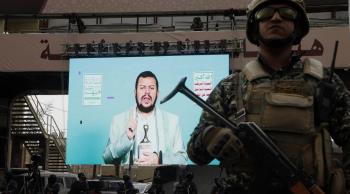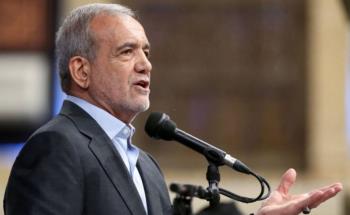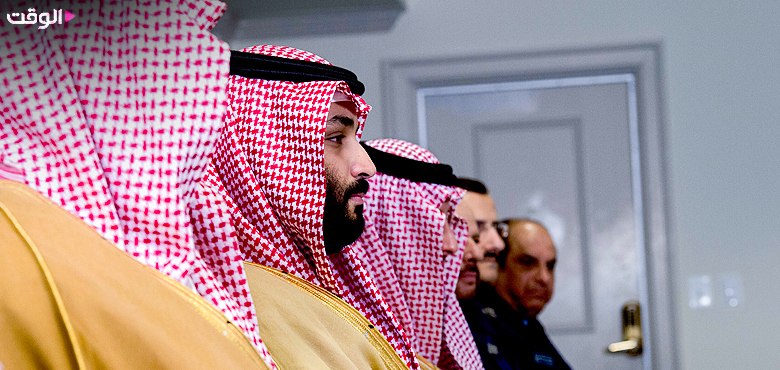Alwaght- The political rift between Saudi Arabia and Lebanon that saw a downtick after resignation of the Lebanese Information Minister George Kordahi on December 3 resurfaced in the past few days, revealing the failure of the overt and covert diplomatic efforts to patch things up.
Hezbollah Secretary-General Sayyed Hassan Nasrallah during a speech delivered on the anniversary of martyrdom of Iran's General Qassem Soleimani and Iraq's Abu Mahdi al-Muhandis responded to largely interventionist remarks recently made by the Saudi King Salman bin Abdulaziz who accused the Lebanese movement of terrorism. Sayyed Nasrallah said it was Saudi Arabia, not Hezbollah, who sent takfiri terrorist groups to Iraq and Syria and waged war on neighboring Yemen. The remarks met different reactions inside Lebanon.
Some of the reactions, especially from officials in the current and former Lebanese governments, viewed the positions of the Hezbollah chief as if disrupting the path of de-escalation with Saudi Arabia, thereby jeopardizing Lebanon's interests in the current economic crisis.
"For God's sake, have mercy on Lebanon and the Lebanese people and stop spreading sectarian and political hatred," said Lebanese Prime Minister Najib Mikati, noting that the Hezbollah secretary-general remarks did not reflect the Lebanese government's position.
Following Mikati's criticism, Lebanese Interior Minister Bassam Rumi ordered removal of any anti-Saudi posters and signs in the streets in southern Beirut, the bastion of Hezbollah, and urged Lebanese citizens to "prioritize national interests" and keep the country away from consequences of "insulting the Arab brothers."
This blame-shifting by the Lebanese government officials comes as looking back at the roots of the current crisis makes it clear that not only Riyadh is the main factor behind the diplomatic crisis and tensions but also as long as there is no essential shift to the Saudi approach to Lebanon developments, any toleration and diplomatic efforts from Beirut to de-escalate tensions would go nowhere.
Saudi goals
Despite Lebanon's efforts to resolve the crisis, the continuation of this situation indicates that Saudi Arabia has specific goals behind tense relations with Lebanon. The Arab kingdom seeks to take advantage of the situation in the country in the first place by continuing the crisis, piling up economic and political pressure on Beirut, and increasing its role in the country by interfering in the upcoming elections and the formation of government. The Saudi rulers also sought to limit Hezbollah's power in order to force Lebanon to align with their policies. The Saudis are now mainly focusing on fueling the crisis to mobilize the political atmosphere against Hezbollah and Michel Aoun's Free Patriotic Movement (FPM) using the consequent instability. Additionally, the US and France's favor for Mikati premiership angered the Saudi Crown Prince Mohammed bin Salman who is now using any diplomatic instruments available to undermine the current Lebanese government, which is an outcome of demanding negotiations and bargaining.
Developing an understanding of the sensitive situation in which economic crisis, fuel and electricity crisis, and deprivation from international aids are the key elements, Saudi Arabia is trying to instrumentalize economy to realize its goals in Lebanon. When it comes to oil imports, Lebanon is dependent on Saudi Arabia. Also, Saudi ban on Lebanese products made Beirut lose around $300 million in revenues. The kingdom is destination of 10 percent of Lebanese exports.
As part of its efforts to create crisis with Lebanon, Saudi Arabia tries to paint Hezbollah a terrorist organization in order to nurture some sort of regional and international alliance against it. On October 27, Saudi Arabia said that it blacklisted Al-Qard Al-Hassanah Credit Institute for its affiliation with Hezbollah, claiming that the institute funds Hezbollah military goals.
This move, actually, labeled as terrorist a part of the Lebanese government. This is while Hezbollah has fought for years in parts of Lebanon and Syria against those who have been described as terrorists internationally and Saudi Arabia has always provided financial support to these terrorist factions.
Responding to the Saudi accusations, Hezbollah chief said: "Those who make these claims are the same people who supported ISIS and terrorism. The terrorist is the one that spread ISIS worldwide, and it is Saudi Arabia. The terrorist is the one that hires thousands of Saudis to carry out terrorist operations in Iraq and it is Saudi Arabia. The terrorist is the one who has waged 7 years of war against the Yemeni people and left the whole nation in blood. The terrorist is one who punishes hundreds or tens of thousands of Lebanese people and takes them hostage [in the Persian Gulf states], thus threatening the Lebanese government."
What is favorable to Saudi Arabia?
Diplomatic and economic pressures along with media propaganda against Hezbollah and the Iranian role in Lebanon are aimed at directing the public opinion against the Axis of Resistance, a regional bloc including Iran, Syria, Iraq, Lebanon, Yemen, and Palestine and struggling against Western overbearing and colonialist policies. If Saudi Arabia succeeds in its approach, in can tip the scales in favor of its policy in Lebanon in competition with Iran, weaken Hezbollah politically and militarily, and secure a more stable position in West Asian developments.



























